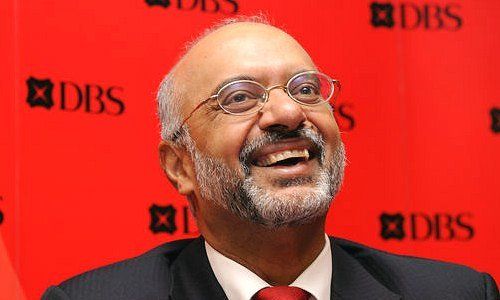DBS' Leaner Wealth Machine
Piyush Gupta is aiming to sink DBS' cost-income ratio to 40 percent. How does this square with traditionally cost-intensive wealth management activities?
DBS wants to lower its cost-income ratio while bulking up on private bankers.
The Singapore-based bank's has snapped up some high-profile hires in recent months, including former UBS heavyweight Joseph Poon or HSBC private banker Rob Ioannou.
«Overall, we continue to invest but our efficiency ratios continue to improve,» Chief Executive Piyush Gupta said on a conference call following the bank's second-quarter results.
Falling Costs
This may be true, but it is impossible to verify: DBS doesn't disclose its cost-income ratio in wealth alone. The ratio for the overall bank fell to 43.4 percent in the second quarter, from 44 percent year-ago.
With high net worth clients, that measure has moved lower than 59 percent, Gupta and Tan Su Shan, who runs the private and consumer bank, said. The measure translates to a dream quotient in private banking, where most rivals are still struggling to get below 70 percent.
Much of the credit belongs to DBS iWealth, Gupta said: «Even our wealthy customers are depending on self-service on the back of iWealth.» DBS is also in the process of digesting several wealth acquisitions including that of ANZ in Asia, which it bought last year.
Common Spine
Another benefit versus competitors is that DBS runs a common framework for all segments of its private bank, from affluent to ultra-wealthy.
«We run a common backbone on compliance, legal, and product selection – we just have differences at front-end of the model,» he said.
DBS' wealthy customers are also increasingly opting for the digital channels, which are far lower-cost than traditional client acquisition.



























